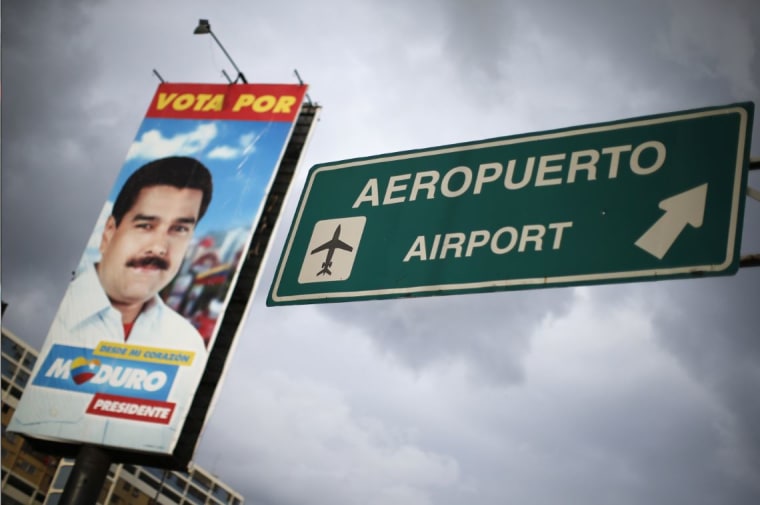CARACAS - If you live in Venezuela and want to fly abroad, get in line.
Flights are booked solid months in advance, not from a new interest in exotic destinations but because locals are profiting from a play on the nation's tightly controlled currency market.
The airline scramble has added to shortages, power cuts and runaway prices as another symbol of the Byzantine economic challenges facing the new government of President Nicolas Maduro in the South American OPEC nation.
"It's like you're trapped here," said travel agent Doris Gaal, telling a customer he would be better off taking a boat to a Caribbean island because the daily flights are fully booked. "It's all because of these stupid dollars!"
After a decade of currency controls set up by late socialist leader Hugo Chavez in 2003, the disparity between the official and black-market rates for the local bolivar currency is higher than ever. Greenbacks now sell on the illegal market at about seven times the government price of 6.3 to the dollar.
There are strict limits on the availability of dollars at the 6.3 rate, but Venezuelans are cashing in on a special currency provision for travelers. With a valid airline ticket, Venezuelans may exchange up to $3,000 at the government rate.
Some are not even flying, leaving many planes half empty.
"It is possible to travel abroad for free due to this exchange rate magic," said local economist Angel Garcia Banchs.
The profit is realized from an arbitrage process known locally as "el raspao," or "the scrape."
Credit cards are used abroad to get a cash advance -- rather than buying merchandise. The dollars are then carried back into Venezuela and sold on the black market for some seven times the original exchange rate.
The large profit margin easily absorbs the cost of flights and accommodation for a trip.
"I've been able to buy new clothes and give some cash to all my closest family members!" said one delighted Venezuelan lady, just back from a trip to Europe.
"It was really easy. There was a guy in a hotel room with 10 point-of-sale machines who swiped my card for $1,000 each day," said a Venezuelan pensioner, also asking not to be named as he described his trip to a Caribbean island.
Carcas to Caracas
Some Venezuelans do not even bother leaving the country, but merely send their credit cards to friends overseas, who swipe the cards and send the cash back to Venezuela.
"This is the reason many airlines are sending half-empty planes," Ricardo Cusanno, head of a local tourism council, told Reuters, saying the government should cross-reference flight lists with those requesting foreign exchange to outwit the no-shows.
As a result of the high level of unused seats, some airlines are beginning to overbook at much higher rates than usual.
As well as perplexing the industry, the scramble for tickets has become a hot topic of conversation and humor on the street.
The nation's leading satirical website, Chiguire Bipolar (Bipolar Capybara, a Venezuelan version of U.S. comic website The Onion), ran a tongue-in-cheek story of a new airline route: from Caracas to Caracas.
The spoof round-trip flight would let passengers nibble on snacks as they leave Venezuelan airspace, swipe their cards to obtain "illicit dollars quickly and securely," and make even more profit by buying duty-free goods to sell at home.
"Raspao" was now the "most dynamic sector" of the country's economy, the story added.
Back at her travel agency in a wealthy Caracas neighborhood, Gaal lamented her inability to serve customers.
"I'll see you on the boat!" she quipped.
